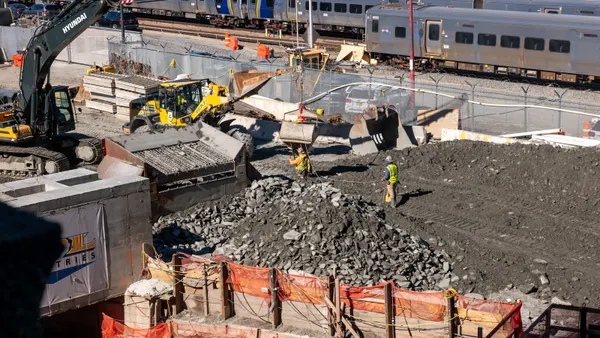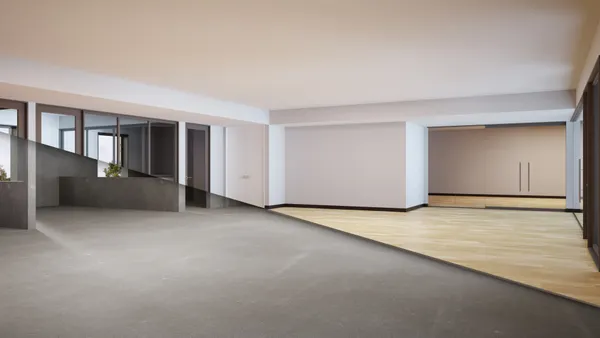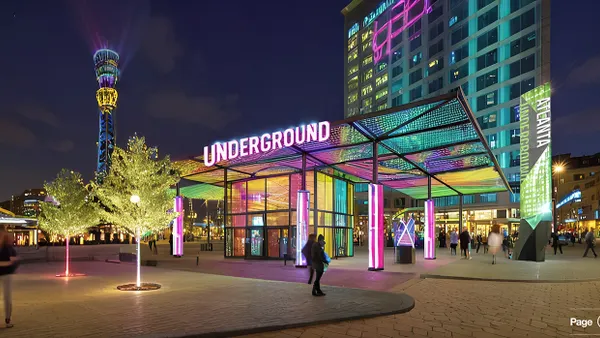Dive Brief:
- Two years after Hurricane Maria, cities in Puerto Rico are hamstrung in rebuilding and resiliency efforts by the slow release of federal funds. Although mayors are "first responders" in dealing with extreme weather events, they are "angry" as they try to rebuild using only local budgets, Ponce Mayor María Meléndez told Smart Cities Dive.
- Hurricane Maria destroyed Ponce, Puerto Rico's second largest city. Meléndez said she has a local plan for rebuilding infrastructure in Ponce's urban, rural and coastal areas, with a focus on elevating houses, fortifying the coastline with water plants and restoring roads.
- However, local plans appear to have been disregarded by the federal government, she said. Relief money from the Federal Emergency Management Agency (FEMA) and other agencies has been too slow to arrive, forcing reliance on local funds and stymieing progress, according to Meléndez. "I want to continue constructing a resilient city, I want to be a smart city," she said. "But if we don't have the money to invest, how are we going to do it?"
Dive Insight:
Over the course of a wide-ranging interview about the city's response to natural disasters, Meléndez recounted the devastation. "When I got out of the emergency management office and saw my city, I began to cry. I said I had never seen such a thing like that," she said.
Organizations have looked to help rebuild Puerto Rico, including the Open Society Foundations' Mayor Exchange and the Smart Cities Council, which gave the territory a special humanitarian grant early last year.
The U.S. Department of Housing and Urban Development (HUD) approved a disaster recovery plan for Puerto Rico in March. Secretary Ben Carson emphasized that it would include "additional financial controls" due to what he called the territory's history of "fiscal malfeasance."
When President Trump weighed in on the aid sent to Puerto Rico, he said the island was sent $92 billion, but in fact Congress appropriated $42.5 billion. The island has received less than $14 billion, which is money that still needs to work its way down to localities from San Juan.
Meléndez said she's grateful for the federal government's support so far, including Puerto Rico's Resident Commissioner Jenniffer González-Colón. But she said Trump's claims about money are "not true," and create division. "It's not even close," an aide told Smart Cities Dive, referring to his characterization of the federal response.
"Even though we are American citizens, they treat us as second-class American citizens," Meléndez said. "They haven't given us the money as rapidly as they have given to the U.S. Virgin Islands, or the [other] states [hit by natural disasters]."
Puerto Rico was embroiled in more political controversy earlier this year after former Gov. Ricardo Rosselló resigned amid scandal, precipitating a constitutional crisis after replacement Pedro Pierluisi's swearing-in was deemed unconstitutional and leading to Wanda Vázquez assuming power.
Fighting corruption has been a cornerstone of Vázquez's administration. She has shown a commitment to "doing things the right way," including calling for cities to more closely manage their own money and not be so reliant on the central government in San Juan, Meléndez said.
There must be more cooperation between the various levels of government about where natural disaster refugees are sent, as cities have little say in how many come to them, she added. The government "gives us the responsibility, but not the resources, not the money" to cope, she said.
Beyond the physical plans for the city's resiliency, Meléndez said she and her colleagues have trained more than 350 members of the community in areas like communications, mass food preparation, first aid, legal issues and mental health treatment.
Organizations like 100 Resilient Cities have previously emphasized that building community should be a key part of a city's resiliency framework, and Meléndez said that has been effective. "The big thing is that after that, communities understood that they have to be well prepared," she said.











